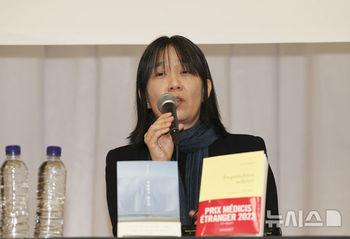 ▲ 권기환 칼럼니스트 ©브레이크뉴스 |
인간에게 삶의 궤적은 고통과 슬픔도 있지만, 행복과 기쁨도 있다. 편안하고 안정된 삶을 평생 누리는 사람보다 고통과 번민에서 스스로 삶을 개척하고 살았던 사람이 자신의 삶뿐만 아니라, 타인의 삶도 더 잘 이해할 수 있다. 누군가 어떻게? 라고 묻는다면, 필자는 바로 타인의 고통을 나의 고통과 마찬가지로 공감할 수 있으면 된다고 생각한다. 우리가 타인의 고통을 나도 그럴 수 있다고 생각하면, 그것은 이미 타인의 삶을 이해하는 것이다. 여기에서 중요한 것은 우리가 완전히 타인의 삶을 과연 이해할 수 있는지의 문제가 아니다. 그런 방식이라면 우리 각자는 타인의 삶을 어떤 방식으로든 전혀 이해할 수 없다. 당연하다! 그저 당연한 말을 상대방의 면전에서 하는 것은 실로 공허하고 아무런 의미가 없다. 만일 진정으로 타인의 삶을 이해하고자 하는 사람이라면, 그 사람이 먼저 타인의 고통을 느낄 수 있고, 공감할 수 있어야 한다. 그럴 때 비로소 한마디 말이라도 상대방이 그 말을 진정성 있게 받아들일 수 있다. 그렇지 않다면, 오히려 역효과가 생길 뿐이다.
인간의 고통은 매우 다양하다. 이 고통은 인간의 삶을 파괴할 수도 있고, 인간을 불행하게 만들 수 있다. 특히, 불교는 한편으로 인간의 삶을 고통(산스크리트어로 duḥkha)으로 보고 있지만, 다른 한편으로 고통의 원인과 고통의 전멸, 그리고 고통을 절멸하는 방법을 우리에게 가르쳐 준다. 이것은 이른바 사성제(catvāri āryasatyāni)다. 사성제는 네 가지의 고귀한 진리이니까, 석가모니의 네 가지 핵심교리를 뜻한다. 즉, 사성제는 세상의 삶은 고통으로 가득 차 있다는 고성제(苦聖諦), 고통의 원인을 뜻하는 집성제(集聖諦), 고통을 없앨 수 있다는 멸성제(滅聖諦), 고통을 없애는 길이라는 의미의 도성제(道聖諦)로 구성된다.
그런데 왜 석가모니는 삶의 고통을 말하는 것일까? 이를 이해하기 위해서, 우리는 불교 철학 이전에 삶의 쾌락을 강조했던 차르바카(?)와 삶의 고행을 강조했던 자이나 철학, 특히 자이나 철학을 창시했던 마하비라(기원전 599-기원전 527)를 생각할 필요가 있다. 인도철학에서 인간 행위의 목적은 대체로 부(artha)와 즐거움(kāma), 법(dharma)과 해탈(mokṣa)에 있다. 차르바카는 유물론자로서 법과 해탈을 거부한다. 차르바카에 의하면, 고통의 소멸로서 해탈이란 단지 죽음을 통해서만 도달될 수 있기 때문이다. 따라서 차르바카는 부와 즐거움을 강조한다. 그런데 차르바카에 의하면, 부란 즐거움을 향유하기 위한 수단일 뿐, 그 자체가 목적이 아니다. 진정한 목적은 바로 즐거움이며, 그것은 선과 다르지 않다. 차르바카는 말하자면 쾌락주의를 주장하는 셈이다. 그러나 석가모니는 바로 이러한 쾌락의 무상함을 지적함으로써 차르바카의 쾌락주의를 비판한다. 사람들은 쾌락을 잃어버릴까 두려워하고, 쾌락을 지속시키기 위해 다른 악행을 저지르기도 한다. 그러다 보면 쾌락의 처음 목적이 사라져 버리고, 오히려 쾌락이 근심과 걱정으로 바뀐다. 이것은 쾌락의 무상함이고, 이것 또한 삶의 고통이 되기 마련이다.
자이나 철학(jainism)에서 지나(jina)는 ‘최고의 완성자’를 뜻하는 산스크리트어다. 자이나 철학에서 고통받는 개인은 자아로서 살아 있으며 의식이 있는 실체다. 자아인 이 실체는 산스크리트어로 지바(jiva)라고 부른다. 지바(자아)는 본질적으로 가장 완전할 뿐만 아니라, 자기 자신 속에 무한한 가능성을 지니고 있다. 그런데 이 자아가 본질적으로 완전함을 얻기 위해서는 모든 장애물을 제거하지 않으면 안 된다. 왜냐하면 장애물이 자아를 오염시켜 버리기 때문이다. 대표적인 장애물이 바로 업인 카르마(karma)다. 카르마는 자아 속에 만족을 추구하는 맹목적인 욕구를 낳는다. 카르마는 이 자아를 속박하는데, 이때 자이나 철학은 자아의 속박을 물질적으로 배열되고 조직된 신체와 연관시킨다. 자이나 철학에서는 자아의 속박이 신체의 원인으로서 물질과 결합이기 때문에, 결국 해탈은 자아와 물질의 완전한 분리를 뜻한다. 이 해탈은 자아 속으로 새로운 물질의 유입을 금지하고 자아와 혼합되어 있는 물질을 완전히 제거함으로써 이루어진다.
그런데 자이나 철학은 해탈에 이르는 수행방법에서 고행(tapas)을 강조하는데, 이것은 석가모니의 비판의 대상이 된다. 물론 자이나 철학에서는 스스로 해탈을 위해 노력한다는 차원에서 엄격한 계율의 준수를 위해 고행은 요구된다. 문제는 자기학대인 고행인 과연 해탈에 도움을 줄 수 있는가다. 오히려 그와 같은 고행은 해탈과 고통 사이에 모순만 초래할 뿐, 현재의 고통을 그대로 감내하는데 머물러 버린다. 그렇게 되면 고행 그 자체가 목적이 되어 버리고, 우리는 고행으로 영원히 해탈에 전혀 이르지 못한다.
필자는 적어도 고통에 관한 한, 위에서 언급된 인도 철학, 특히 자이나 철학과 불교 철학이 시사하는 바가 크다고 생각한다. 불교 철학은 확실히 인간의 삶이 고통임을 깨닫고, 이 고통의 원인과 고통에서 벗어나는 방법을 일목요연하게 설명한다는 점에서 의미가 있다. 그런데 문제는 이 모든 것이 만일 자아의 집착이나 아집이라면, 불교 철학에서는 이른바 무아론으로 귀결될 것이다. 이 무아론을 어떻게 받아 들인지는 논쟁이 있을 수밖에 없다.
고통은 인간의 감정과 연관된다. 어떤 행동이든 혹은 어떤 말이든 상대방을 자극하는 것은 그의 감정을 건드리는 것이다. 나의 말 한마디 혹은 행동 하나가 상대방에게 고통을 주는 것이라면 될 수 있는 한 자제하는 것이 필요하다. 그런데 이것만으로 불충분하다! 누군가는 언제든 그렇게 행동하거나 말해서 상당히 감정이 상해질 수 있다. 그러면 우리는 어떻게 하면 될까? 필자가 한 가지 정도로 제안하자면, 각자가 상대방의 모든 행동이든 말이든 그것을 염두에 두기보다 그저 의견으로 담대하게 생각하고, 어느 정도 초연할 필요가 있다. 이를 위해서는 각자가 많은 사람을 만나는 것보다 적은 사람들과 만나는 것이 좋고, 서로 너무 많은 시간을 보내는 것은 바람직하지 않다.
고통에서 벗어나는 사람들은 대체로 새로운 세계와 마주할 때 두려움이 없다. 사실 그 두려움이라는 것도 나 스스로 그렇게 느끼고 고통스러워하는 것일 뿐, 그 이상도 그 이하도 아니다. 더 나아가 그런 사람들의 공통점은 세상을 달리 본다는 점이다. 하나의 세상만이 아니라 여러 세상이 있지만, 나 스스로가 미처 별다른 관심을 두지 않았던 것일 뿐, 분명히 다른 세상도 우리 자신과 함께 존재한다는 사실이다. 이것은 거짓이 아닌 분명한 진리다. 고통에서 벗어난 사람들은 스스로 존중할 뿐만 아니라, 타인을 누구보다도 존중한다. 열린 마음으로 모든 것을 소중히 여기니, 그들은 행복과 기쁨이 있을 뿐이다, 설령 불행 혹은 슬픔이 닥치더라도 당황하지 않는다.
그런데 그렇다고 해서 우리가 고통을 고통이 아니라고 말할 필요는 없다. 고통받는 사람에게 흔히 이겨내라는 말이나, 슬퍼하지 말라는 말은 전혀 타당하지 않다. 왜냐하면 그것은 상대방에게 하는 말이 아니기 때문이다. 따라서 그렇게 말하는 것보다 상대방의 고통을 공감해주는 말과 태도가 더 중요하다. 여기에서 중요한 것은 교감이고, 서로 함께 하는 것이 중요하다. 고통은 서로 함께 나눌 때 자연스럽게 완화된다.
고통 없는 삶이란 인간에게 불가능하다. 오직 나만이 고통을 받고 있다고 생각하기보다 누구든 고통을 당할 수 있고, 이 순간에도 나 말고 고통을 당하는 사람이 많다는 생각은 고통의 강도를 상대적으로 경감시킨다. 그리고 이러한 생각의 긍정적 효과는 고통의 원인이 단연코 나에게 있지 않음을 확인시켜 준다. 만일 반대라면, 나의 고통만이 가중되고 고통에서 헤어날 방법은 전혀 존재하지 않는다. 대부분의 그런 사람들은 일시적으로 고통을 잊어버리고자 약물이나 알콜에 의존하지만, 결국 아무 소용이 없음을 스스로 알게 된다. 그러나 그럴수록 그들은 이전보다 더 강한 약물이나 알콜에 의지해서 일시적으로 고통을 잊으려고만 할 뿐, 자신들의 건강을 해치는 길로 들어갈 수밖에 없다. 스스로 고립된 자아는 결코 고통에서 벗어날 수 없다. 고통에서 벗어나기 위해서는 스스로 고립되기보다 나와 비슷한 상황에 있는 사람들과 연대하는 것은 중요하다. 거기에서 고통은 이제 더 이상 나 개인의 고통에 머물러 있지 않고, 모두의 고통이 되고, 거기에서 고통은 분명히 사라질 것이다.
jgfichte@naver.com
*필자/권기환
철학박사. 동국대에서 석사학위를, 독일 지겐대 제 1학부(역사-철학과)에서 철학박사학위(Dr. phil.)를 취득했다. 경희대, 경기대, 명지대, 상명대, 강남대, 홍익대 등에서 강의를 했다. 현재는 가천대에서 강의를 하고 있다. 주요 관심사는 독일 관념론, 독일 초기 낭만주의, 프랑스 현상학, 해석학, 동서 비교 철학 등이다. 한국 헤겔학회, 한국칸트학회, 한국해석학회, 한국 현상학회(전 정보이사), 서양 근대철학회 등에서 활동하고 있다.
*아래는 위 기사를 '구글 번역'으로 번역한 영문 기사의 [전문]입니다. '구글번역'은 이해도 높이기를 위해 노력하고 있습니다. 영문 번역에 오류가 있을 수 있음을 전제로 합니다.<*The following is [the full text] of the English article translated by 'Google Translate'. 'Google Translate' is working hard to improve understanding. It is assumed that there may be errors in the English translation.>
For humans, suffering trains life
columnist Kwon Ki-hwan
For humans, the trajectory of life includes pain and sadness, but there are also happiness and joy. A person who pioneered and lived his or her life in pain and anguish can understand not only his or her life but also the lives of others better than a person who enjoys a comfortable and stable life throughout his or her life. If someone asks me how, I think I just need to be able to sympathize with the pain of others as well. If we think that I can do the same with others, it is already understanding the life of others. What is important here is not whether we can completely understand the life of others. In that way, each of us can't understand the life of others at all in any way. Of course! It is truly empty and meaningless to say something that is natural in the face of the other person. If you are a person who truly wants to understand another person's life, that person must be able to feel and sympathize with the pain of others first. Only then can the other person accept the word sincerely. Otherwise, it will only have the reverse effect.
Human suffering is very diverse. This pain can destroy human life and make humans unhappy. In particular, Buddhism sees human life as pain (duh ̣ kha in Sanskrit) on the one hand, but on the other hand, it teaches us the cause of pain, the annihilation of pain, and how to annihilate pain. This is the so-called four-song system (catvāri ̄ryasatyani). The four-song system is the four noble truths, so it means the four core principles of Sakyamuni. In other words, the four-song system consists of a high-pitched 諦 that the world's life is filled with pain, a 集 諦 that means the cause of pain, a 滅 諦 that means the cause of pain, a 諦 苦 that means the way to get rid of pain, and a Taoist 諦 that means the way to get rid of pain.
But why does Sakyamuni refer to the pain of life? To understand this, we need to think about Charbacca (599 BC-527 BC), who emphasized the pleasure of life before Buddhist philosophy, and Mahabira (599 BC), who founded the Zaina philosophy, especially the Zaina philosophy, which emphasized the hardship of life. The purpose of human action in Indian philosophy is generally in wealth and pleasure (5mama), law (dharma), and liberation (moks ̣a). Charbacca rejects law and liberation as a materialist. This is because, according to Charbacca, liberation as the extinction of pain can only be reached through death. Therefore, Charbacca emphasizes wealth and pleasure. However, according to Charbacca, wealth is only a means to enjoy pleasure, not an end in itself. The true purpose is pleasure, and it is not different from good. Charbacca advocates hedonism, so to speak. However, Sakyamuni criticizes Charbacca's hedonism by pointing out the impermanence of this very pleasure. People are afraid of losing their pleasure and commit other evil acts to sustain it. Then the first purpose of pleasure disappears, and it turns into anxiety and worry. This is the impermanence of pleasure, and this is also bound to be the pain of life.
In jainism, jina is a Sanskrit word that means 'the best complete'. Individuals who suffer in jainism are alive as selves and conscious entities. This entity, which is the self, is called jiva in Sanskrit. The jiva (self) is not only essentially the most complete, but also has infinite possibilities in itself. However, in order for this self to be essentially perfect, all obstacles must be removed. This is because obstacles pollute the self. The representative obstacle is karma. Karma produces a blind desire for satisfaction in the self. Karma binds this self, at which time the bonds of the self are related to the materially arranged and organized body. In Jaina philosophy, since the bondage of the self is the cause of the body and is combined with matter, liberation means the complete separation of the self and matter. This liberation is achieved by prohibiting the inflow of new substances into the self and completely removing substances mixed with the self.
However, Zaina philosophy emphasizes tortas in the practice method leading to liberation, which is the subject of criticism from Sakyamuni. Of course, in Zaina's philosophy, asceticism is required to comply with strict precepts in the sense of striving for liberation by oneself. The question is whether it can help liberation, a self-abuse asceticism. Rather, such asceticism only leads to a contradiction between liberation and pain, and only stays to endure the present pain as it is. Then, asceticism itself becomes an end, and we cannot achieve liberation forever due to asceticism.
I believe that the Indian philosophy mentioned above, especially Zaina and Buddhist philosophy, has significant implications, at least as far as suffering is concerned. Buddhist philosophy is meaningful in that it clearly explains the cause of suffering and the way to escape it, realizing that human life is suffering. However, the problem is that if all of this is an obsession or subjugation of the self, in Buddhist philosophy, it will result in the so-called theory of selflessness. There is bound to be a debate over how to accept this theory of selflessness.
Pain is associated with human emotions. Anything that irritates the other person's feelings is touching his or her feelings. If every word or action I say is causing pain to the other person, it is necessary to restrain yourself as much as possible. But this is not enough! Someone can be quite offended if they act or say that at any time. So what do we do? I would suggest to one extent that each person just needs to think boldly with their opinions, and to be somewhat detached, rather than keeping in mind everything the other person does or says. To this end, it is better for each person to meet fewer people than meet many people, and it is not desirable to spend too much time with each other.
People who escape from pain are generally fearless when confronted with a new world. In fact, the fear is just feeling and suffering in myself, nothing more or less. Furthermore, what such people have in common is that they see the world differently. There are not only one world but many different worlds, but it is just that I have not paid much attention to myself, and obviously other worlds exist with ourselves. This is a clear truth, not a lie. People who have escaped pain not only respect themselves, but also respect others more than anyone else. They value everything with an open mind, so they only have happiness and joy, and they do not panic even if unhappiness or sadness strikes.
But that doesn't mean we need to say that pain isn't pain. It's simply not appropriate to tell the suffering person to endure it or not to grieve. Because that's not what you're saying to the other person. Therefore, it's more important to empathize with the other person's pain than to say so. Communication is what matters here, and it's important to be with each other. Pain is naturally relieved when shared.
A life without pain is impossible for humans. Rather than thinking that only I am suffering, anyone can suffer, and the idea that there are many people who suffer at this moment other than me relatively reduces the intensity of the pain. And the positive effect of these thoughts confirms that the cause of the pain is definitely not on me. If the opposite is true, only my pain is aggravated, and there is no way to get out of it. Most such people rely on drugs or alcohol to temporarily forget their pain, but eventually find it useless. However, the more they do that, the stronger they are than before, only to temporarily forget the pain, and they have no choice but to go down the path of harming their health. The self-isolated self can never escape from pain. In order to escape from pain, it is important to unite with people in similar situations to me rather than isolate yourself. There, pain no longer stays in my individual pain, but everyone's pain, and it will certainly disappear from there.





















